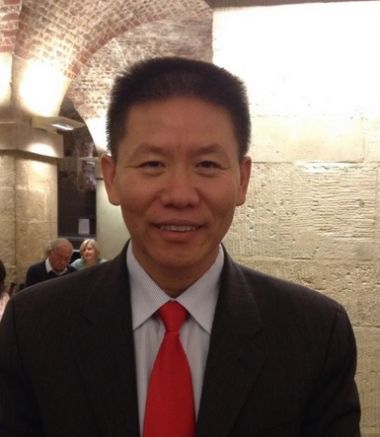US-China human rights dialogue is 'useless, toothless show' says China Aid president

The president of human rights organisation China Aid will tell a US Congressional hearing tomorrow that the Government should be much tougher on China over religious persecution.
Bob Fu has been called to give evidence to the Congressional-Executive Commission on China in a hearing titled "Religion with 'Chinese Characteristics'".
He told Christian Today: "I want to see the US Government abolish the annual human rights dialogue because it is useless, a toothless show." He said China used the dialogues as a cover for continuing abuses and that human rights should be an integral part of talks on economic and business affairs.
He also said he would call for a global 'Magnitsky Act', legislation used to call to account Russian officials held responsible for the death in prison of the lawyer Sergei Magnitsky and involving travel bans and the freezing of assets.
Fu said the Chinese government had begun an organised crackdown on Christianity because of its remarkable growth over the last few decades, instigated by the President Xi Jinping. Persecution was particularly marked in Wenzhou, known as the 'Jerusalem of the East' for the number of its churches. According to Fu, around 1,500 churches had been demolished or had their crosses taken down in the province, and significantly, almost all were officially recognised congregations. "This is unprecedented," he said. "It is the first time this has happened since the Cultural Revolution."
He said there were signs that persecution was spreading to other provinces as well and that in keeping with Chinese practice for major policies, one province – Wenzhou – had been used as a testbed.
Fu said: "You would think that the Church's contribution to the stability of society – its charitable work with the needy and with victims – would be praised. But it is the nature of the Communist Party that it will not tolerate competition for minds and hearts. Christianity has grown so fast that Christians outnumber Communist Party members. The whole purpose of this is to control the 'overheated' growth of Christianity. They are nervous not just about Christianity but of any organised civil group."
Fu said President Barack Obama's administration had taken a "business-oriented" approach and was more reluctant to make human rights an issue. "That is a strategic mistake," he said, adding that it showed the US as "weak, intimidated by China's economic power into ignoring and downgrading core values".
"That just encourages more abuse."
He continued: "If a government starts arbitrarily abusing its own citizens – good citizens – and disregarding the rule of law, how much can they be trusted as an international partner and stakeholder in the business field?"
According to China Aid, Christians are not the only ones to suffer from laws against religion. New laws issued this year view "cults" and strong religious adherence among Uyghur Muslims as national security problems, legitimising draconian restrictions against this population. Efforts have made to undermine the Dalai Lama's influence among Tibetans and control the selection of Buddhist leaders. Falun Gong practitioners continue to face efforts to eradicate their spiritual practice, through torture, detention in 'transformation centres', and organs have been harvested from prisoners.
Lawyers who defend vulnerable religious groups and other "sensitive cases" face disbarment, detention, and physical violence.











